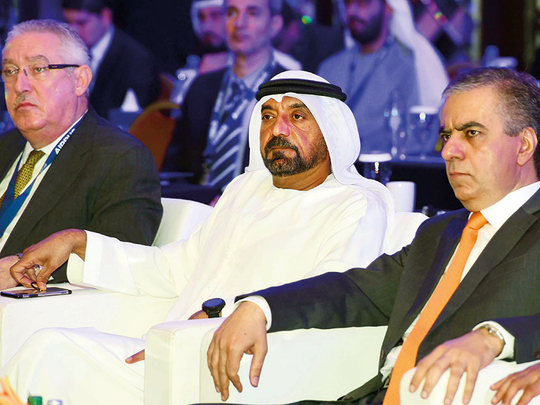
Dubai
Protectionism breeds inefficiencies and is not going to help anyone.
That was the message that senior executives in the Middle East’s aviation industry sent on Wednesday during the Arab Aviation Summit in Dubai, where they highlighted the importance of Open Skies policies and blasted protectionism.
The summit was inaugurated by Shaikh Ahmad Bin Saeed Al Maktoum, president of the Dubai Civil Aviation, and Chairman and Chief Executive of Emirates airline and Group.
Adel Ali, chief executive officer of Air Arabia, said protectionism and blocking competition present a new challenge to companies, and that Open Skies policies are needed to ensure the development of the aviation industry.
Open Skies refers to policies agreed upon by two or more governments allowing for unrestricted overflight and landing rights on each other’s lands. Such policies allow for more competition between international carriers and more travel options for consumers.
“Creating jobs and business opportunities in almost all sectors is what makes [aviation] so exciting, but this will not happen by blocking others or by [protectionism],” he said in a speech.
Similarly, Gaith Al Gaith, chief executive officer of flydubai, said that making travel easier by opening borders and reducing regulations would allow the company to grow.
Speaking to Gulf News on the sidelines of the summit, the CEO said that boosting Open Skies policies would not only benefit companies but would benefit consumers as well. “We always said that the more Open Skies [agreements], the better for the industry, but we also understand that it’s a government thing … For me, India is always an opportunity. I admire what the Indian people and the government have done and how they have developed in every sector … but when it comes to the aviation sector, I think it is still unchanged when it comes to policies,” Al Gaith said.
While protectionism has been a hot topic in late 2016 and in 2017 because of rhetoric from the US and the UK governments, protectionism has been a concern in India’s aviation sector for far longer. Foreign airlines have long tried to gain greater access to the Indian market, which they describe as lucrative, but the market remains highly protected.
But perhaps the strongest criticism of protectionism came from Abdul Wahab Teffaha, secretary general of the Arab Air Carriers Organisation, who said protectionism doesn’t work and will only delay the financial and economic pain. “You kill the economy, you kill the growth, you kill all the efficiencies by trying to protect someone,” he said, adding that different countries have tried protectionist measures and they did not work.
Aviation executives have long voiced their concerns about protectionism, with the International Air Transport Association (IATA) earlier this year saying such policies would hurt the industry and economic growth.
During the summit, top airline executives also discussed other challenges facing the industry.
Air Arabia’s Ali pointed challenges that include air traffic management, sky liberalisation, and rising taxes and charges.
Also speaking at the summit was Stefan Pichler, chief executive of Royal Jordanian, who said he expected to see more consolidation in the Middle East’s aviation industry as demand for low-cost carriers grows.
“The more travel becomes a commodity, the more it becomes a playground for low-cost airlines … so I think what will happen is we’ll have stronger cooperation between low-cost airlines and so-called legacy airlines. Who wins the commodity game is the guy with the lowest cost,” he said.












